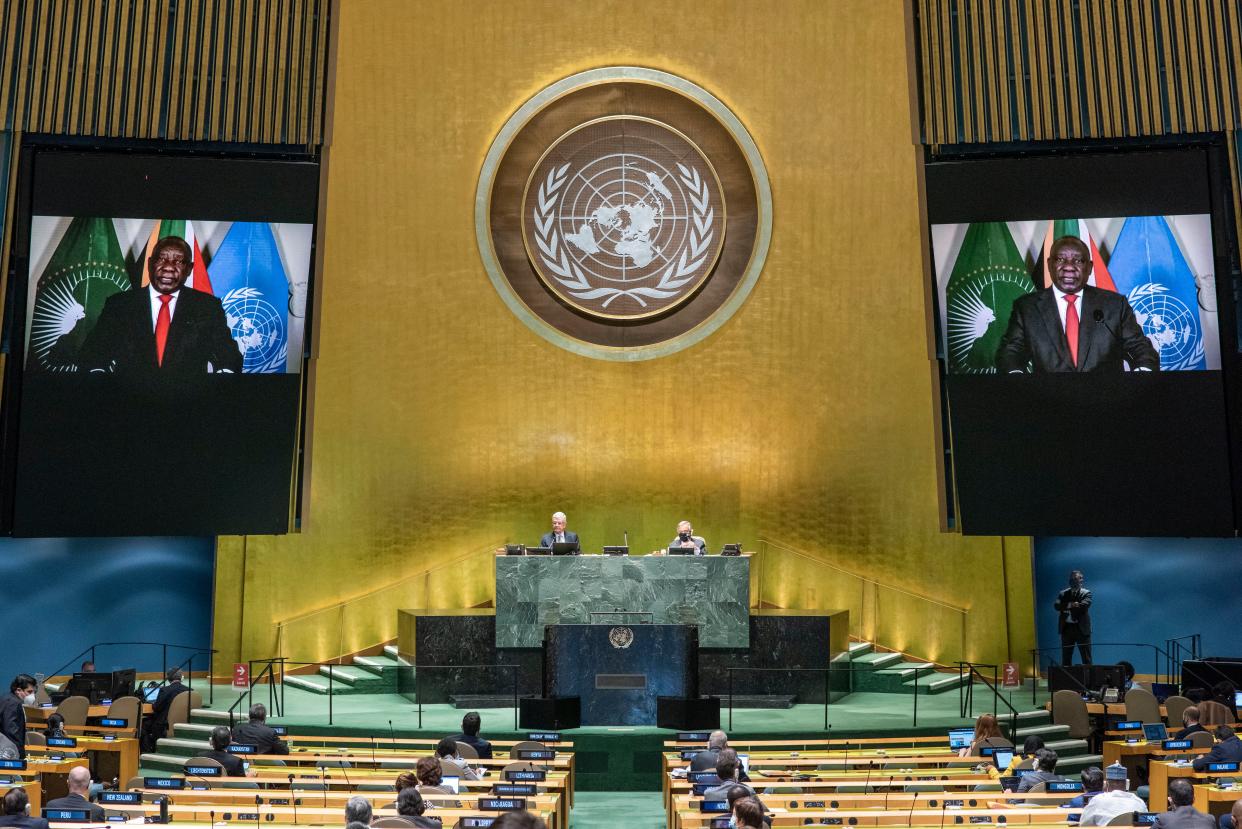Inside the UN General Assembly, diplomats like me are concerned by what we see

Inside the UN, our mood is sombre. President Trump’s speech on Tuesday took a page out of the fascist playbook and laid responsibly for Covid-19 squarely at the feet of the Chinese. He spoke of the “China virus” and said that “we must hold accountable the nation which unleashed this plague onto the world: China”. The blunt rhetoric may play nicely with his base, but sets up a diplomatic incident for which he or his successor will have to surely make amends. If not him, then the mid-west soybean farmer surely will.
Iran then compared the sanctions placed upon them by the international community with the Black Lives Matter movement, declaring that their necks are being knelt on by oppressive countries that prevent their purely peaceful development.
France, through President Macron, prattled on and on and on, providing the translators with the greatest hits of multilateralism. Alas, the French government’s rings a little hollow, considering their enduring economic colonialism of the CFA Franc, which exerts French monetary control over 14 African countries.
Covid-19 is testing us, and it will continue to do so. Climate change, scarcity of resources, and the omnipresent challenge of inequality are continuing challenges. We cannot bury our heads in the sand, close the pub at 10pm (a la Prime Minister Boris Johnson of the United Kingdom) and hope the problem has gone away in the morning. The challenges in front of us are truly immense and require multilateral action.
For 75 years, the “system” of the General Assembly has effectively operated as a way to convene global leaders, but more importantly, their associated staff. During the Cold War, politicians could grandstand on the podium, while we would hammer out deals of actual consequence in the Vienna Cafe, Olympia or head to the basement Oyster Bar at Grand Central to smooth over ruffled feathers. Such meetings between diplomats have been made basically impossible by the coronavirus pandemic.
The machine of diplomacy is a physical business, and we can only succeed with facing the challenges on front of us if we can talk and be trusted. As diplomats we represent the best interest of our countries; at times, this transcends actual political power. Often, treaties and deals are made in a dingy bar with a handshake, kiss of the cheek or a nod. Zoom diplomacy isn’t working.
In the coming days, the consequences of our leaders speaking without the ground being prepared properly beforehand will soon become a little clearer. This is a shame, none more so than for the United States.
Trump is not even flirting with intellectual, “designer" fascism; he is a dollar-store fascist who barely has any strength of conviction. In other words, he’s not only dangerous — he’s unpredictable. With the immense challenges in front of us, we need better global leadership. Trump’s speech confirmed how far we need to go.
For the United Nations to be strong, we need more capable leaders at the heads of countries, leaders who truly provide inspirational leadership. The current lack of such leaders make Covid-19 look like the amuse-bouche, not the entrée.
In my time as a civil servant, the words “it is not too late” have been uttered more times than I can remember. They are true today. But equally true is that we do not have much time: the problems in front of us require decisive, inclusive and insightful leadership, and we do not have this. We cannot afford to get the problems of tomorrow as wrong as we have collectively responded to Covid-19. We need a stronger, more United Nations. It is time to realize the vision of 1945 and be truly united — otherwise the consequences don’t bear thinking about.
Emin Pasha is the pseudonym of a United Nations diplomat based in New York


